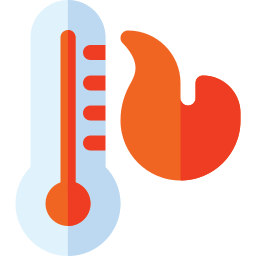One of the most frustrating problems that can appear on a Ford Escape is to see its temperature gauge rising. The truth is, a gauge that rises above 90/100° is usually a symptom that your Ford Escape is heating up. If you are in this case, you took the good decision to visit this web page link because we will help you to identify the source and understand the induce. To accomplish this, in the beginning, we will check out the causes for engine overheating and the hazards you run, and secondly, what possibilities are available to you to get rid of this phenomenon.

Why is my Ford Escape overheating? What are the risks?
A Ford Escape that heats up is an indication of a serious issue. You should not think that you will handle it later because, if you do, you risk irreversibly injuring the engine of your car. In actual fact, if your Ford Escape heats up, and you keep driving, you just risk the breakage of your car engine. An internal combustion engine works through combustion, which causes heat. This heat must be regulated because it can affect the engine parts. If you see white smoke starting to emerge out of your engine and you encounter a loss of power, your Ford Escape is heating up and you are injuring your engine, you must stop.
What are the causes of an heating up Ford Escape ?
- A leak in the cooling system
If you repeatedly run out of coolant and refill your system on a regular basis, you may have a leak, so have your system checked out for leaks. It is also possible that it is your cylinder head gasket that is defective, in which case you should find “mayonnaise” in the area of your engine oil cap. - A dead calorstat
The function of this part is to switch on the engine cooling only when the engine is at optimum temperature, if it is broken, the coolant will never reach the engine and your Ford Escape will heat up. Check its state. - A blocked radiator
Although this situation is not so common, if your radiator is very dirty, or clogged with impurities, its cooling fins will no longer do their task and on hot days your Ford Escape may overheat. - A fan that no longer works
Don’t forget to check the state and operation of your fan, in addition to the air produced by the speed of your Ford Escape, it has a decisive duty in cooling your engine when it has to be the relay when you drive slower. In the eventuality of a breakdown and travelling at low speed, your car will obviously heat up. - A damaged water pump
To conclude, it is possible that your water pump is at the end of its life. In actual fact, its task is to flow the coolant throughout the circuit, in the instance of failure this process stops and your Ford Escape heats up. This may be due to a faulty belt that has damaged your pump. If this is your case, go to your workshop.
How can I solve the issue of an heating up Ford Escape?
In addition to having checked out all the parts that may be causing your Ford Escape to heat up, you will have to make the right moves to limit the risks in case your vehicle gets hot and you have no other alternative than to go home, or to go to your auto mechanic.
Here are a few tips if your car is overheating:
- Reduce your engine speed but not your speed:
Reducing your engine speed will allow you to limit the heat emitted by the engine. In contrast, try to stay in 5th gear at 70/80 km/h in order to have a large natural airflow to control the heating of your Ford Escape. - Stop the engine of your Ford Escape if you go above 100°:
Don’t be in a rush, in a case of overheating, it is better to take breaks and let the engine cool down rather than pushing it and risking breakage. - Turn on your heater:
Turning on the heater will allow you to gets rid of some of the heat from the engine block, it is an useful solution. And in contrast, turn off your air conditioner which generates heat.
To find more tips on the Ford Escape, take a look at the Ford Escape category.

